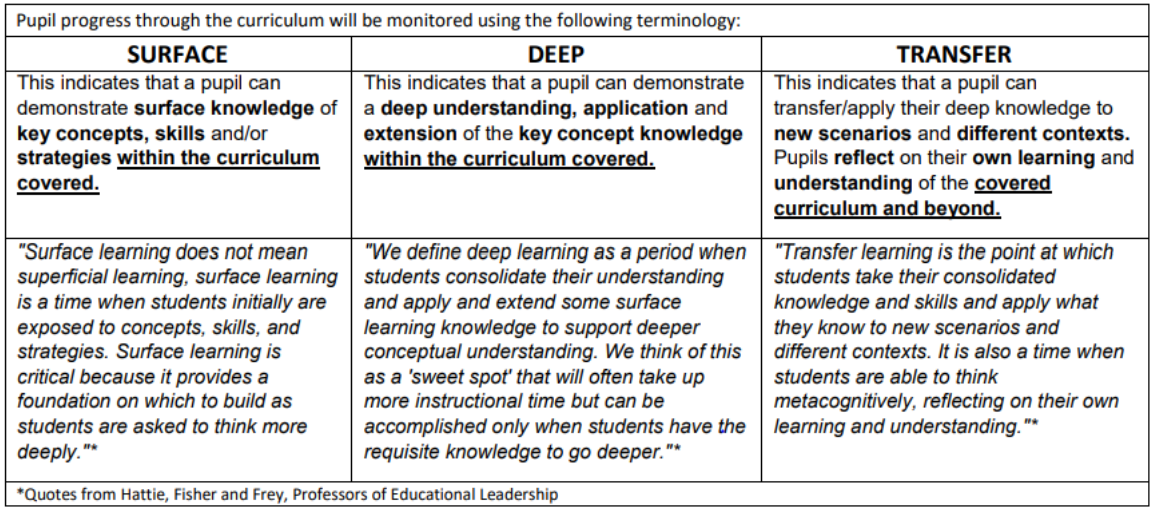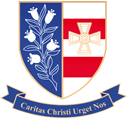Academic Reports
Every effort will be made to report home an accurate picture of your child’s current attainment. We would encourage you to discuss school reports with your child, giving praise where it is due and support where there is room for improvement.
You will receive 3 school reports per year – one at the end of each term.
School reports will contain information on the following areas:
Overall ‘Attendance’ – All students should be aiming to have a 97% minimum attendance.
Overall ‘Credits/Debits’ – The number of rewards or sanctions issued to date.
Subject specific ‘Progress statement’
Subject specific ‘Attitude to learning Inside the classroom’
Subject specific ‘Attitude to learning Outside of the classroom’
Progress (years 7, 8, 9)
In place of a grade, your child has been given a statement to indicate how well they have demonstrated their learning in relation to the key concepts they have studied so far in each of their subjects.

Teachers will assess your child’s understanding of the key concepts of each subject based upon the core knowledge, skills and vocabulary that they have been taught up to each assessment point. We’ve included links on the report to the ‘key stage 3 end points’ students are assessed against in each subject, and much more about your child’s curriculum is shared via our website:
https://www.stjosephs.uk.net/curriculum/subjects/.
Progress (years 10, 11, 12 and 13)
‘Working at grade (WAG)’ – This is a teacher assessed grade based upon the work covered this year, particularly your child’s performance in the recent assessment. It is graded using the 9-1 GCSE system or the BTEC assessment grading system.
‘Predicted final grade (PFG)’ – Based on current assessment and in class evidence, this is what the teacher believes your child is on track to achieve in their external examinations at the end of year 11/13. It is graded using the 9-1 GCSE system or the BTEC assessment grading system.
Attitude to Learning
Attitude to Learning grades focus on students becoming more independent in their learning. They are measured against success criteria to encourage students to develop specific habits that will enable them to succeed academically and make progress to their next stage of education or employment with confidence.
Attitude to learning (ATL) Criteria – Inside the classroom:
Students who are demonstrating an attitude to learning inside the classroom at or above our expected high standard will exhibit some or all of the following behaviours:
| Expected high standard (3) |
|
| Above expected high standard
(4 – sometimes) (5 – consistently) |
|
Attitude to Learning (ATL) Criteria – outside the classroom:

Students who are demonstrating an attitude to learning outside the classroom at or above our expected high standard will demonstrate the following behaviours:
| Expected high standard (3) |
|
| Above expected high standard
(4 – sometimes) (5 – consistently) |
|


